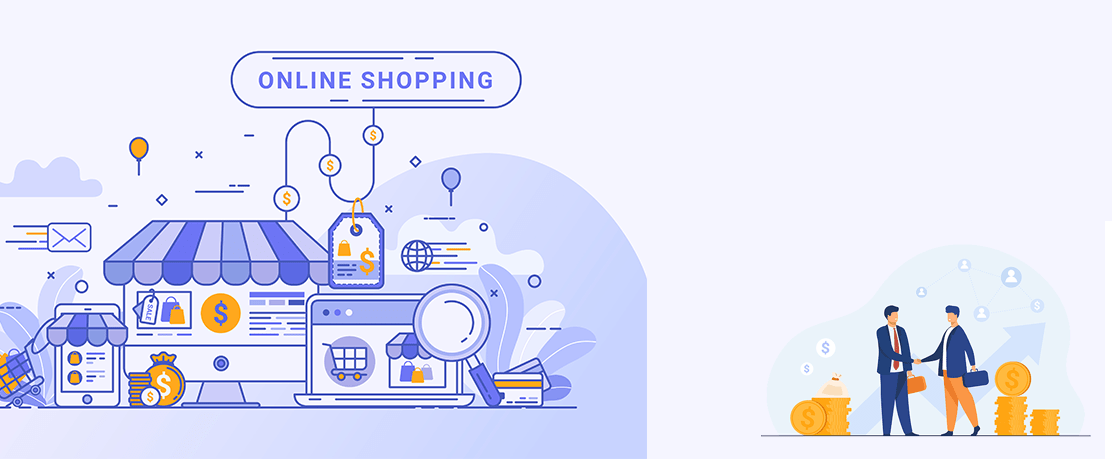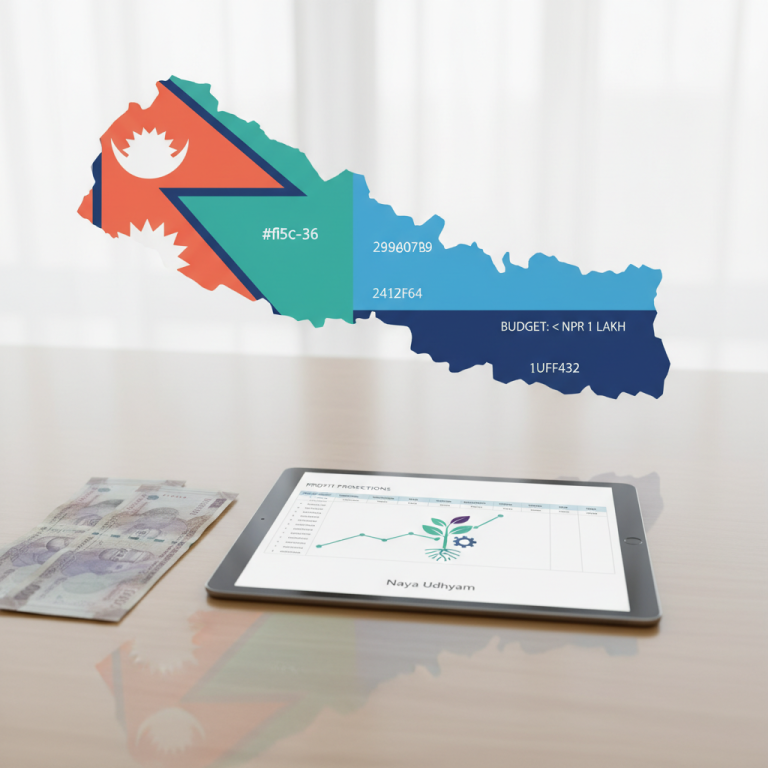In the ever-evolving landscape of digital commerce, understanding the diverse array of features that power e-commerce platforms is crucial for businesses aiming to thrive in the online marketplace. Here, we delve into the intricacies, innovations, and indispensables that make up the comprehensive world of e-commerce features.
Unpacking the Essence: Features Of E-Commerce
E-commerce, as a dynamic ecosystem, is not just about facilitating transactions; it’s a multifaceted realm where features play a pivotal role in shaping the user experience and driving business success. From the very foundational elements to the cutting-edge innovations, the features of e-commerce are the building blocks that contribute to a seamless and engaging online shopping journey.

Features Of E Commerce | Check 107+ E-Commerce Features
1. Intuitive User Interface and Navigation
At the heart of every successful e-commerce platform is an intuitive user interface. Seamless navigation, clear categorization, and user-friendly design are the bedrock, ensuring that visitors can effortlessly explore the virtual aisles and find what they’re looking for.
2. Robust Product Management
Efficient product management is a linchpin in the e-commerce world. Features such as easy product uploads, categorization, and inventory tracking ensure that businesses can showcase their offerings effectively while maintaining accurate stock levels.
3. Responsive Design for Mobile Optimization
In the era of smartphones, mobile optimization is not just a feature; it’s a necessity. E-commerce platforms need to adapt gracefully to various devices, providing a consistent and satisfying shopping experience on desktops, tablets, and mobile phones.
You need to have best e-commerce web design partner or company to get perfect website to your business.
4. Secure Payment Gateways
Ensuring the security of online transactions is paramount. Robust payment gateways encrypt sensitive information, providing customers with the confidence to make purchases without concerns about the safety of their financial data.
5. Diverse Payment Options
Flexibility in payment options is a key feature that caters to a broad audience. Whether it’s credit/debit cards, digital wallets, or other emerging payment methods, a comprehensive e-commerce platform accommodates various preferences.
6. Advanced Search and Filters
In the vast digital marketplace, the ability to quickly find desired products is crucial. Advanced search functionalities and filters empower users to refine their searches based on categories, prices, brands, and other relevant criteria.
7. Personalized User Accounts
Creating a personalized experience enhances customer engagement. Features such as user accounts, order history, and personalized recommendations contribute to a more tailored and user-centric shopping journey.
8. Efficient Shopping Cart and Checkout Process
A seamless shopping cart and checkout process minimize friction in the purchasing journey. Features like one-click ordering, guest checkouts, and clear, concise steps enhance the overall user experience.
9. Integrated Customer Reviews and Ratings
Customer trust is often bolstered by the experiences of fellow shoppers. Integrated customer reviews and ratings provide valuable insights, helping potential buyers make informed decisions.
10. Social Media Integration
In the interconnected world of today, social media integration is more than just a feature; it’s a strategy. E-commerce platforms benefit from features that enable easy sharing, social login options, and integration with popular social platforms.
11. Robust Security Measures
E-commerce deals with sensitive customer data, making security a top priority. Features like SSL encryption, secure sockets layer, and regular security audits ensure that customer information is safeguarded.
12. Real-Time Analytics
For businesses aiming for growth, real-time analytics is a game-changer. Features that provide insights into user behavior, sales trends, and website performance empower businesses to make data-driven decisions.
13. Order Tracking and Shipment Notifications
Transparency in the order fulfillment process is valued by customers. Features that allow real-time order tracking and automated shipment notifications enhance the post-purchase experience.
14. Multi-Language and Multi-Currency Support
In the global marketplace, catering to diverse audiences is essential. Multi-language and multi-currency support features make e-commerce platforms accessible to a broader spectrum of users.
15. Scalability for Business Growth
As businesses expand, their e-commerce platforms should scale accordingly. Scalability features ensure that the platform can accommodate increased traffic, products, and functionalities without compromising performance.
107+ E-Commerce Features: A Comprehensive Checklist
While the aforementioned features provide a snapshot of the e-commerce landscape, the true depth lies in a comprehensive checklist of 107+ features that empower businesses and elevate the online shopping experience. This extensive list covers everything from SEO optimization tools and marketing integrations to loyalty programs and AI-driven chatbots.
SEO Optimization Tools:
- Meta tags and descriptions
- SEO-friendly URLs
- XML sitemaps
- Canonical tags
- Alt tags for images
- Schema markup
Marketing Integrations: 7. Email marketing integration
- Social media marketing tools
- Affiliate marketing modules
- Google Analytics integration
- Conversion tracking pixels
Loyalty Programs: 12. Points-based systems
- Discount coupons for loyal customers
- Tiered loyalty programs
AI-driven Chatbots: 15. Automated customer support
- Product recommendations
- Order tracking assistance
The Future Landscape: Features Of E-Commerce in the Next Decade
As we gaze into the future, the evolution of e-commerce features is inevitable. Emerging technologies like augmented reality (AR), virtual reality (VR), and voice commerce are poised to become integral components of the e-commerce landscape. The future will likely witness an even more personalized, immersive, and technologically advanced shopping experience.
- Top level domain with SSL
- Unique logo
- User-friendly navigation
- Wishlist
- Shopping cart
- Customer login
- Guest Checkout
- Quick Checkout
- Easy Customer verification
- SMS Alert
- Billing by Email
- Email Notification
- Complain Offers
- coupon code
- Payment Getaway Integration
- Fast Loading Website
- Customer Dashboard
- Customer History
- Customer Recommendation
- Show products based on customer interest
- Product Review
- product compares
- Product filter with
- brand
- color
- product
- price
- size
- specifics gadgets feature like, RAM, ROM etc.
- Model
- category
- etc.
- Advance search
- Easy Customer Support
- Good Return Policy
- Cash on Delivery Option
- Good term and Condition policy
- SEO friendly URL
- SEO Optimized
- User-Friendly Design
- Business Friendly Development
- Attractive Banner Section
- Offer Section
- Best Deal Section
- Trending Section
- Popular product section
- Top Selling product Section
- Best Seller
- Recommended Product
- Recently Viewed products
- Batter Footer Section
- Attractive offer Pop up
- Customer newsletter
- Google analytics integrate
- live Chat integrates
- Social Media Integrate
- Google, Bing, other search engine indexing
- Customer Review
- Customer product review
- Well product Details
- Product Attribute highlight
- Customer review display
- Seller Details
- Seller all products list
- Seller rating or review
- option to review to seller
- products parameter like size, color selection while add to cart
- Well product zoom in while mouse over
- you may like products
- new arrival products
- Loyalty program
- FAQ
- order tracking
- Full Details on About us Page
- High Quality Images
- Breadcrumb navigation
- Pricing discount offer option
- Add to Cart Button
- Cart details
- Final price
- Billing address and shipping address
- Security seals
- Include an area to punch in promo codes
- Allow items to be saved for later
- Social share buttons
- Back-end Features List
- Dashboard/reporting tools
- Administrator management
- Customer management
- Store management
- Content management
- product management
- easy product details edit
- Order and shipping management
- Payment, taxes and location management
- Auto SEO to the Products
- Email marketing integration
- Discount and promotion management
- Root file upload
- Tracking code integration
- Responsive design
- Customer Management
- Block the customer
- Multilevel security
- Automatic site backup
- Advance product Search
- Logistic Partner integrates
- Newsletter sends
- User management with roles
- Product full details option, title, description, SEO, Attributes, images, gallery, etc.
- well SEO optimized categories
- organed category like parent, child, sub-child etc.
- easy offer, banner management
- order status update notification update to the customer
- return management system
- B2B System
Conclusion: Embracing the Complexity of E-commerce Features
In conclusion, the features of e-commerce represent a dynamic and ever-expanding universe. From the foundational elements that ensure seamless transactions to the cutting-edge technologies that shape the future, each feature plays a vital role in defining the success and user experience of an online platform.
As businesses continue to navigate the complex terrain of digital commerce, staying abreast of the latest features and innovations is not just a strategy; it’s a necessity. Whether you’re a business owner shaping an online storefront or a consumer navigating the digital aisles, understanding the diverse features of e-commerce is the key to unlocking a world of possibilities.
Explore, engage, and embrace the intricate features that make e-commerce not just a transaction but a journey into the future of commerce.
Frequently Asked Questions (FAQs) – E-commerce in Nepal
General Questions
Q1: What is e-commerce, and how does it work in Nepal?
A: E-commerce, short for electronic commerce, refers to the buying and selling of goods and services over the internet. In Nepal, e-commerce operates similarly to global standards. Businesses set up online platforms, and consumers can browse, select, and purchase products or services, with transactions typically facilitated through secure payment gateways.
Q2: Is e-commerce popular in Nepal?
A: Yes, e-commerce is gaining popularity in Nepal. With increasing internet penetration and a growing tech-savvy population, online shopping has become a convenient and preferred way for consumers to access a wide range of products and services.
Shopping and Transactions
Q3: How can I make a purchase on e-commerce platforms in Nepal?
A: To make a purchase, simply visit your chosen e-commerce website, browse the products, add items to your cart, and proceed to checkout. Follow the steps to provide shipping details and choose a payment method. After completing the transaction, you’ll receive confirmation and details about your order.
Q4: What payment methods are commonly accepted in Nepali e-commerce?
A: E-commerce platforms in Nepal accept various payment methods, including credit/debit cards, digital wallets, bank transfers, and cash on delivery (COD). The availability of payment options may vary between platforms.
Security and Privacy
Q5: How secure are online transactions in Nepal?
A: Online transactions in Nepal are secured through encryption technologies such as SSL (Secure Sockets Layer). Reputable e-commerce platforms prioritize the security of customer information and use secure payment gateways to protect sensitive data.
Q6: Can I trust online reviews for products on e-commerce sites?
A: While online reviews can provide valuable insights, it’s advisable to consider a mix of positive and negative reviews for a balanced perspective. Reputable e-commerce platforms often have genuine customer feedback, but it’s essential to use your judgment.
Delivery and Returns
Q7: How does product delivery work, especially in remote areas?
A: E-commerce platforms in Nepal are continually improving their logistics networks. Some platforms offer delivery services even to remote areas. It’s advisable to check the platform’s delivery policies or contact customer support for specific information.
Q8: What is the return policy for products purchased online?
A: Return policies vary among e-commerce platforms. Generally, you can return products within a specified period if they are damaged, defective, or if you change your mind. Check the platform’s return policy for detailed information.
Future of E-commerce in Nepal
Q9: What can we expect for the future of e-commerce in Nepal?
A: The future of e-commerce in Nepal looks promising. Government initiatives, technological advancements, and the growing acceptance of online transactions suggest continued growth. Expect to see more innovations, improved services, and an expanding array of products.
Q10: Are there any upcoming trends in Nepali e-commerce?
A: Emerging trends in Nepali e-commerce include the integration of AI and AR technologies, increased focus on sustainability, and the expansion of niche markets. Keeping an eye on technological advancements and market trends will provide insights into the evolving landscape.











